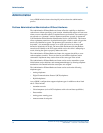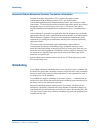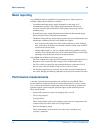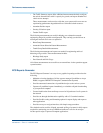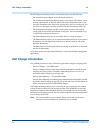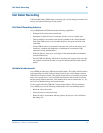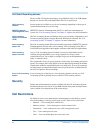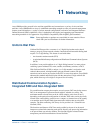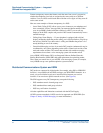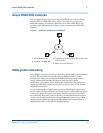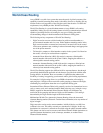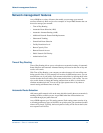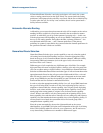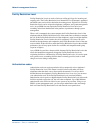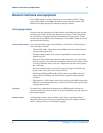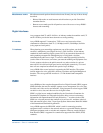
Distributed Communication System — Integrated
SDN and Non-Integrated SDN
11
Overview for Avaya IP600 Internet Protocol Communications Server
555-233-001 — Issue 5 — November 2000
84
Feature transparency means that features work the same from a user’s perspective,
whether the telephones involved are assigned to the same switch or to different
switches. Users in a DCS can dial each other with four or five digits as if they were all
on the same switch.
Here are some examples of feature transparency in a DCS:
• Leave Word Calling (LWC) allows you to press a button on your telephone and
leave a standard “call me” message with your name and phone number. When
your Avaya IP600 is linked with other switches in a DCS, you can call any
employee in the DCS complex and press the LWC button to automatically leave a
standard message.
• Calling-Party Name Display — If your telephone is equipped with a digital
display, information about the person calling you is displayed before you pick up
the receiver. With DCS you know who is calling and whether that person is in a
nearby building or across the country.
• Centralized Messaging services for an entire DCS complex (subnetwork) may be
coordinated by one system, depending on the traffic volumes and versions of the
main and remote switches. This means that switches with smaller messaging
requirements do not share a voice messaging system with another switch.
Avaya IP600’s DCS features DCS over Integrated Software Defined Network-
Primary Rate Interface (ISDN-PRI) with path replacement for optimizing trunks.
Thus, when you transfer out of your AUDIX voice messaging system, for example,
Avaya IP600 sets up a new path that optimizes system resources.
Distributed Communications System and ISDN
DCS nodes are connected by digital trunks (for example, using DS1 or ISDN-PRI
facilities). Avaya IP600 can send DCS messages over ISDN-PRI D channels. As a
result, you are not limited to private or leased facilities between your various
locations. You can also use public-network services. (See Figure 6.)
The SDN supports every DCS transparency except the following:
• DCS attendant control of trunk group access
• DCS attendant direct trunk group selection
• DCS busy verification of terminals
All other capabilities and limitations associated with the DCS still apply.
AUDIX systems networked via DCS can also be supported over ISDN-PRI. (See
Chapter 4, Intuity AUDIX Messaging, for more information.)



